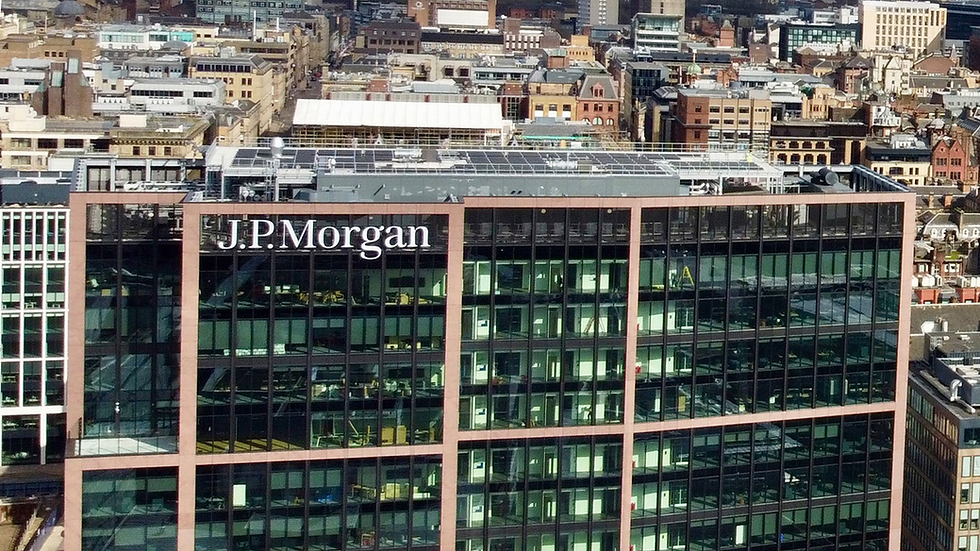JP Morgan Subpeonaed over CATL IPO?Wall Street on Trial?
- Yash Sharma

- Jul 27
- 3 min read
Written by : Yash Sharma
Founder & CEO of Total Finance Resolver
JP Morgan Subpeonaed over CATL IPO along with Bank of America
This past week, headlines sent shockwaves through the financial world: top executives at JP Morgan and Bank of America have been subpoenaed by U.S. lawmakers. The reason? Their involvement in the high-profile IPO of Chinese electric battery giant CATL.
To some, it smells like strategy. To others, sabotage. But one thing is certain: this isn't just another Wall Street headline. It's a high-stakes confrontation at the crossroads of global finance, geopolitics, and regulatory accountability.

The Backdrop: Why CATL? Why Now?
CATL (Contemporary Amperex Technology Co. Limited) is the world’s largest EV battery manufacturer. As China's clean tech ambitions grow, CATL's dominance has become symbolic of the broader economic rivalry between Beijing and Washington.
The company’s IPO, already controversial due to its scale and strategic importance, is now under additional scrutiny. Lawmakers allege that U.S. banks may have helped facilitate the offering without sufficient transparency regarding national security implications.
Total Finance Resolver's thoughts on JP Morgan Subpeonaed over CATL IPO, you would later read about.
Subpoenas as a Signal
This isn’t just about CATL. The subpoenas signal a deeper legislative push to rein in Wall Street's global reach, especially when it intersects with foreign adversaries.
JPMorgan and BofA are now in the hot seat. Lawmakers want internal communications, due diligence documents, and testimonies that reveal how the IPO was vetted and approved.
The subtext? No more business-as-usual when it comes to China-linked IPOs.
Investor Fallout: Risk, Reputation & Regulation
Markets hate uncertainty, and this case delivers it in spades.
Institutional investors are already recalibrating exposure to firms with China risk. Meanwhile, compliance teams across Wall Street are tightening protocols. For retail investors? The message is more psychological: global deals may no longer come with global stability.
Banks, too, face a two-fold challenge: defend reputation while avoiding political backlash. For JPMorgan and BofA, the timing couldn’t be worse. Just as they aim to grow international deal flow, they're being accused of enabling potential threats.
What This Means for the Future of Cross-Border IPOs
This event could be a precedent-setter.
Expect more rigorous vetting. More disclosures. Possibly even a freeze on sensitive listings. Financial advisory firms will need to rethink due diligence frameworks. Tech, biotech, and energy IPOs with ties to China or Russia may see heightened friction or outright rejection.
In the short term, global IPO volume might dip. In the long term? Regulatory harmonization may redefine how American capital interfaces with non-allied nations.
Total Finance Resolver's Take: What Founders & Fund Managers Should Watch
Deal Hygiene Is Non-Negotiable: Whether you're raising or investing, your compliance must be audit-proof.
Political Risk Is Financial Risk: Cross-border capital is no longer just about FX and tax treaties. It's now about optics and alignment.
Use This Moment: Audit your current holdings. Revisit due diligence protocols. Position yourself as a transparent, security-conscious participant in global finance.
Final Word: The Financial World Is Watching
This isn’t merely a Wall Street scandal. It’s a litmus test. For banks. For regulators. For anyone navigating capital across borders.
For founders, LPs, and institutions: geopolitics is now a core input in deal calculus. If you’re not recalculating risk, you’re already behind.
FAQs
Q1: Why are JPMorgan and BofA being subpoenaed?
A1: Lawmakers suspect their role in the CATL IPO may have bypassed proper vetting regarding national security risks.
Q2: What is CATL?
A2: It is China’s largest EV battery maker and a key player in the global energy supply chain.
Q3: How could this affect investors?
A3: It may cause volatility, especially in sectors with high China exposure or pending IPOs involving non-allied nations.
Q4: What should founders and fund managers do now?
A4: Conduct risk audits, strengthen compliance protocols, and monitor global regulatory signals closely.




Comments